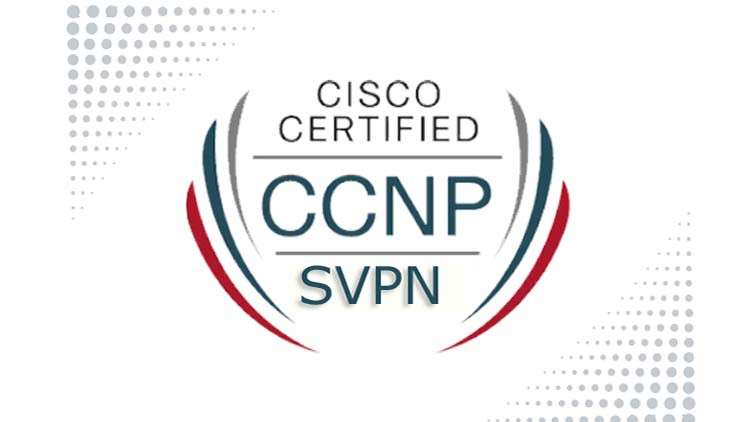
This Practice Test is designed to help you to pass the Implementing Secure Solutions with Virtual Private Networks Exam.
What you will learn
Understanding various VPN types such as site-to-site, remote access, and SSL VPNs.
Implementing and configuring Cisco AnyConnect client-based remote access VPNs.
Configuring and troubleshooting site-to-site VPNs using Cisco routers and firewalls.
Implementing and troubleshooting multi-site VPNs.
Utilizing monitoring tools to ensure VPN performance and security.
Description
CCNP SVPN, which stands for Implementing Secure Solutions with Virtual Private Networks, is a comprehensive certification program designed for IT professionals seeking advanced knowledge and skills in deploying and managing secure virtual private network solutions. The associated exam, 300-730, is a crucial component of the CCNP (Cisco Certified Network Professional) certification track, focusing specifically on secure VPN implementations.
In this certification, candidates delve into the intricacies of Virtual Private Networks, with a strong emphasis on security measures. The CCNP SVPN certification equips IT professionals with the expertise needed to design, implement, and manage secure VPNs, ensuring the confidentiality, integrity, and availability of data transmitted over network connections.
Key aspects covered in the CCNP SVPN certification include:
- VPN Technologies: Candidates learn about various VPN technologies, protocols, and architectures, such as site-to-site VPNs, remote access VPNs, and Virtual Tunnel Interface (VTI). Understanding the strengths and limitations of different VPN technologies is crucial for deploying effective and secure solutions.
- Secure Communication: The certification focuses on securing communication channels through encryption, authentication, and integrity verification. This includes the implementation of cryptographic algorithms, key management, and digital certificates to safeguard data during transmission.
- Identity Management: CCNP SVPN covers the integration of identity management solutions with VPNs. Candidates learn to implement access control policies, ensuring that only authorized users and devices can access the network resources.
- Endpoint Security: The certification addresses endpoint security considerations, including the use of security policies, antivirus solutions, and other measures to protect devices connecting to the VPN.
- Troubleshooting and Monitoring: Candidates gain skills in troubleshooting VPN-related issues and monitoring VPN performance. This ensures the continuous and reliable operation of VPN solutions.
- Integration with Security Solutions: CCNP SVPN explores the integration of VPNs with other security solutions, such as firewalls and intrusion prevention systems, to create a comprehensive and layered security approach.
By successfully completing the CCNP SVPN certification, IT professionals validate their expertise in designing and implementing secure VPN solutions in complex network environments. This certification is especially valuable for those involved in network security, system administration, and IT management roles, providing them with the knowledge and skills necessary to address the evolving challenges of securing modern networks.